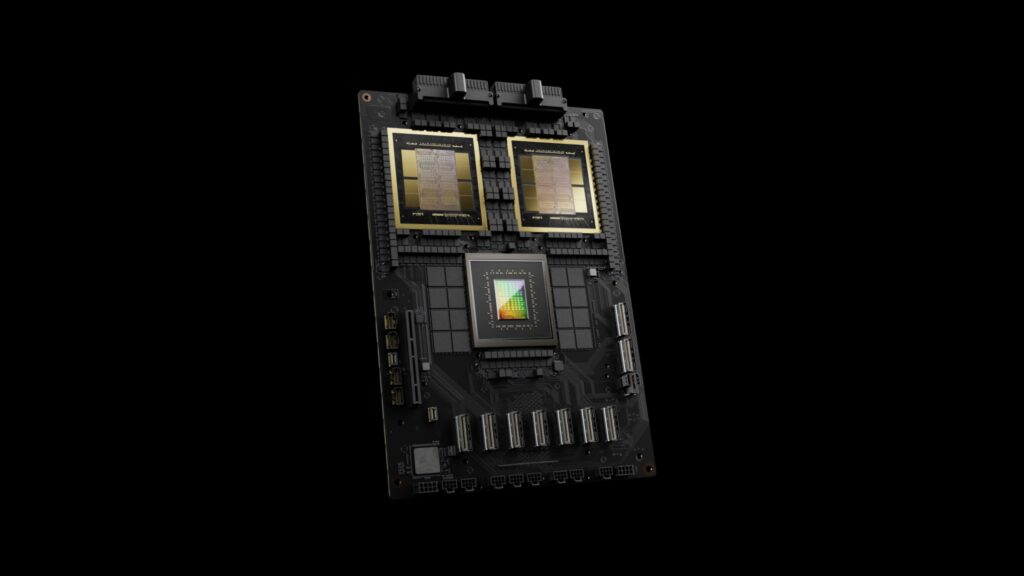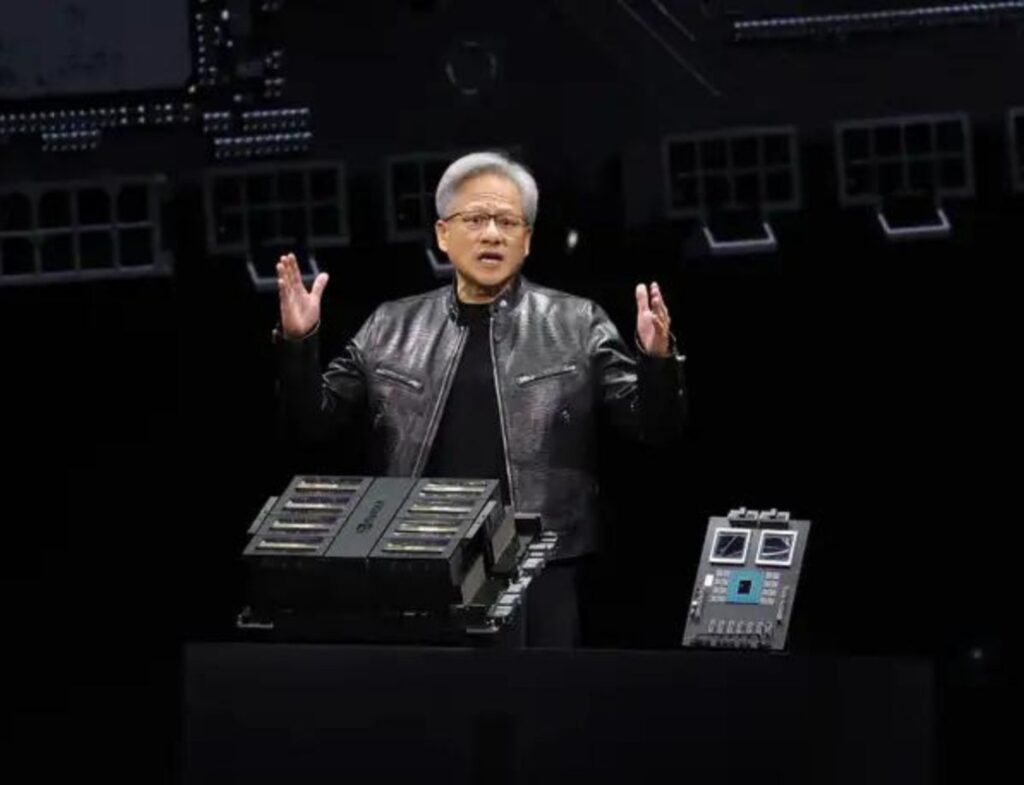Nvidia’s CEO Jensen Huang took the stage at the GPU Technology Conference (GTC) on Monday to unveil the company’s latest innovation: the Blackwell GPU. Branded after mathematician David Blackwell, the first Black scholar inducted into the National Academy of Sciences, the Blackwell chip promises to revolutionize AI processing with its staggering 208 billion transistors.

The announcement comes amidst Nvidia’s meteoric rise in the AI industry, with Huang dubbing the GTC as the “Woodstock of AI,” a testament to its significance in the tech world. Nvidia’s ascent has been propelled by its H100 chips, which power large language models essential for running generative AI applications like OpenAI’s ChatGPT. These GPUs have propelled Nvidia to record-breaking earnings, making it the first chipmaker to achieve a $2 trillion market cap and secure its position as the third-most valuable company globally.
Huang’s keynote highlighted the Blackwell GPU’s capabilities, boasting enhanced speed and efficiency over its predecessors. With tech giants like Microsoft, Google, and Oracle eagerly awaiting its arrival, the Blackwell chip is poised to become a cornerstone of AI infrastructure worldwide. Microsoft and Google, in particular, stand as Nvidia’s largest customers for its H100 chips, underscoring the industry’s reliance on Nvidia’s technology.
Beyond the Blackwell unveiling, Huang announced strategic partnerships with industry leaders such as Cadence, Ansys, and Synopsys, signaling Nvidia’s commitment to collaborative innovation. Notably, Cadence is developing a supercomputer utilizing Nvidia’s GPUs, while Nvidia’s AI foundry is partnering with SAP, ServiceNow, and Snowflake to advance AI infrastructure.

In a nod to the expanding applications of AI, Huang revealed Nvidia’s ambitious projects, including CorrDiff, a generative AI model aimed at predicting weather patterns with unprecedented accuracy. Additionally, Nvidia’s Omniverse platform now integrates with Apple’s Vision Pro headset, showcasing its versatility across different technologies and industries.
Huang concluded his keynote with a futuristic display, presenting robots powered by Nvidia’s Jetson computer systems alongside Nvidia’s Isaac Sim technology. As the GTC progresses, industry leaders and experts will converge to explore the latest advancements in AI, from technical innovations to ethical considerations.
While Nvidia’s dominance in AI is indisputable, concerns over chip shortages loom large. Competitors like Amazon and Google are developing their own AI chips to stay competitive in the rapidly evolving landscape. Despite these challenges, Nvidia’s unveiling of the Blackwell GPU solidifies its position as the driving force behind AI innovation, shaping the future of technology in profound ways.
